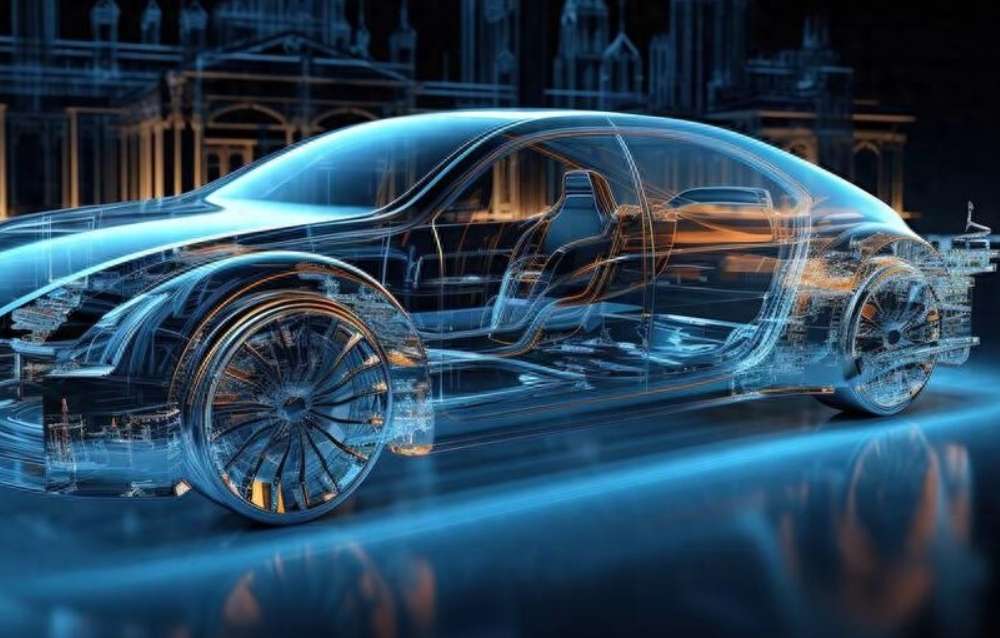In a groundbreaking announcement that sent ripples through the automotive industry, Li Fenggang, the Executive Deputy General Manager of FAW Audi, recently revealed that all new Audi models launched this year will be equipped with Huawei's intelligent driving system. This decision has prompted a myriad of reflections within the sector, particularly concerning how it will redefine the industry landscape and what implications it may hold for the development of the Chinese automotive supply chain.
Audi, renowned as the epitome of high-end combustion vehicles in Germany, has long exerted significant influence in the marketplace. However, in the face of rapid advancements in electric vehicles, especially within the Chinese market, traditional fuel-powered vehicles are losing their competitive edge in terms of value for money and technological innovation. Notably, Chinese electric vehicle manufacturers have not only made electric cars more affordable but have also made leaps in technology. Companies like CATL have emerged as global leaders in battery manufacturing, while Chinese electric drive systems are reportedly outpacing their petrol counterparts in efficiency.
The significance of intelligent driving systems in consumers’ acceptance of electric vehicles cannot be overstated. Huawei has distinguished itself in this domain, offering systems that not only enhance the driving experience but significantly bolster the safety and sensory perception of electric cars. Recognizing the urgency of transitioning in the electric vehicle sector, Audi has strategically decided to harness Huawei's robust technological capabilities to gain a competitive advantage in the market. This collaboration aims at propelling Audi ahead of its rivals in the intelligent transformation pertaining to electric mobility.

However, this transition is fraught with both challenges and opportunities for Audi. Historically, the automaker’s competitive strengths in areas like batteries, motors, and electronic control systems are waning when pitted against Chinese firms in the electric vehicle sector. The calculus of cost-effectiveness tipped decidedly against traditional automakers. Yet, by incorporating intelligent systems, Audi can carve out a unique competitive edge in the electric vehicle space. For luxury brands, intelligent systems are key to enhancing brand competitiveness and improving user experiences—akin to the transition from traditional to smart mobile phones.
Continuing to depend solely on the advantages of gasoline vehicles leaves Audi in a precarious position, particularly when competing with homegrown electric vehicle brands. Names like Tesla and BYD have successfully captured substantial market shares through their cost-efficient battery technologies, electric motors, and intelligent management systems. Hence, it is imperative for Audi to embrace intelligent electric vehicles to enhance their competitive standing in the marketplace.
The significance of the Audi and Huawei collaboration extends beyond mere technological advancement; it marks a pivotal milestone in the globalization of China’s electric vehicle supply chain. Huawei has established itself as a leading global technology company, particularly in areas such as 5G, artificial intelligence, and intelligent driving systems. Audi, recognizing its lag in intelligent transformation, sees this partnership as an opportunity to bridge its technological gap. This collaboration not only enhances the competitiveness of Audi but also significantly bolsters the supply chain of the Chinese automotive industry, positioning China at the forefront of critical automotive technologies such as batteries, motors, and intelligent systems.
By sourcing core components from China, Audi stands to benefit from decreased production costs while simultaneously improving its product competitiveness. Furthermore, collaborating with a prestigious international car manufacturer like Audi allows Chinese automotive manufacturing technology and products to gain greater recognition in global markets, propelling additional growth opportunities for the Chinese electric vehicle industry.
As Audi integrates Huawei's intelligent driving system, its reliance on Chinese core technologies becomes starkly apparent. Most of the crucial components will be sourced from China, complicating Audi's identity. The brand is no longer simply a traditional foreign car; it increasingly appears as a product of the Chinese supply chain. Nonetheless, in terms of brand equity and design, Audi remains a premier luxury brand with a robust market presence.
This development beckons consumers to reconsider the distinctions between "foreign cars" and "domestic cars," as it challenges the conventional understanding of vehicle production and design. In an era characterized by globalization, the car manufacturing landscape no longer restricts itself to single nations or regions; transnational partnerships and global supply chains are the new normal. As China's electric vehicle sector rises, it is likely that more foreign brands will seek to collaborate with Chinese enterprises, catalyzing further transformation within the global automotive industry.
In conclusion, the partnership between Audi and Huawei symbolizes not just a technological collaboration but a substantial realignment in market strategies. Audi is making a concerted effort to maintain its competitiveness in future markets through the intelligent transformation of electric mobility. Meanwhile, China’s leadership in core electric vehicle technologies is reshaping the global automotive landscape. This initiative not only addresses Audi's technological shortfalls but also positions the company advantageously within the global waves of electrification and intelligent innovation.
Moving forward, electric vehicles equipped with intelligent systems are poised to dominate the automotive industry. Audi’s proactive strategy lays a strong foundation for its future, simultaneously creating broader opportunities for the ascent of the Chinese automotive industry. This collaboration marks a significant step towards the increasing prominence of China's position within the global automotive supply chain, heralding the rise of its electric vehicle industry as an undeniable force on the world stage.
 July 31, 2025
July 31, 2025